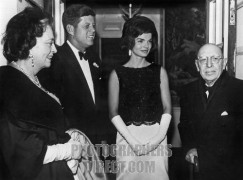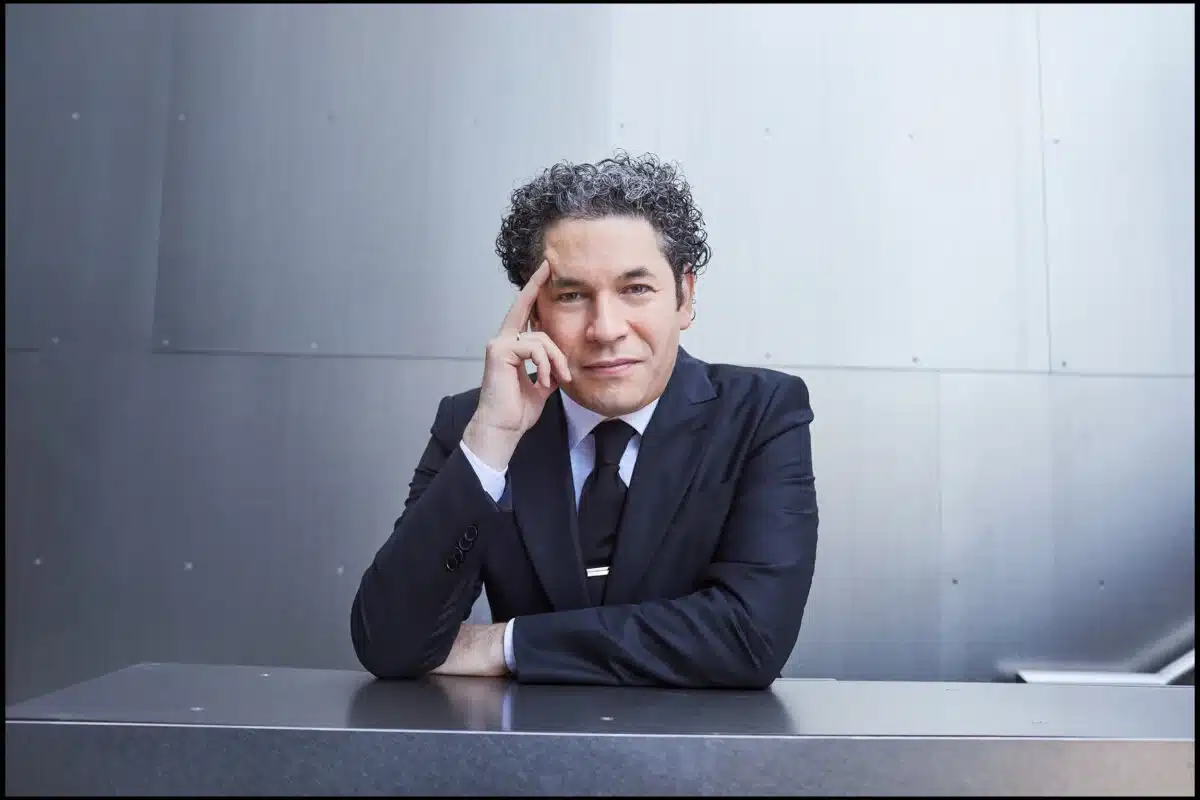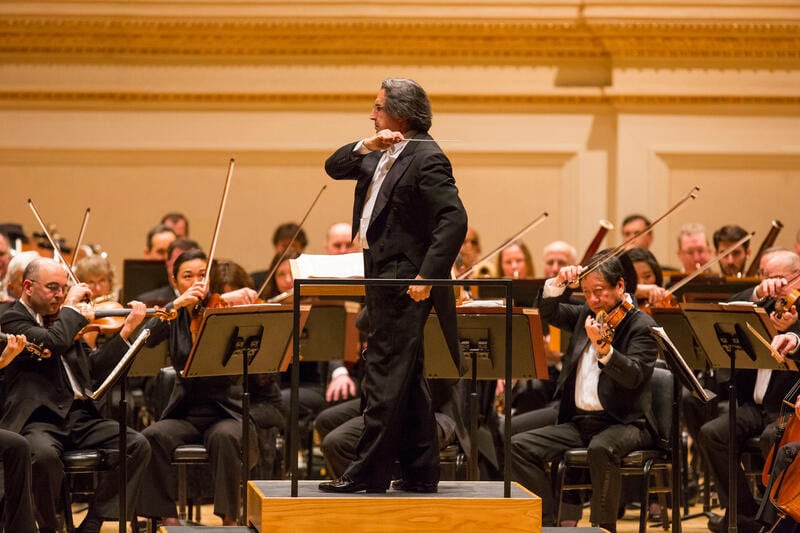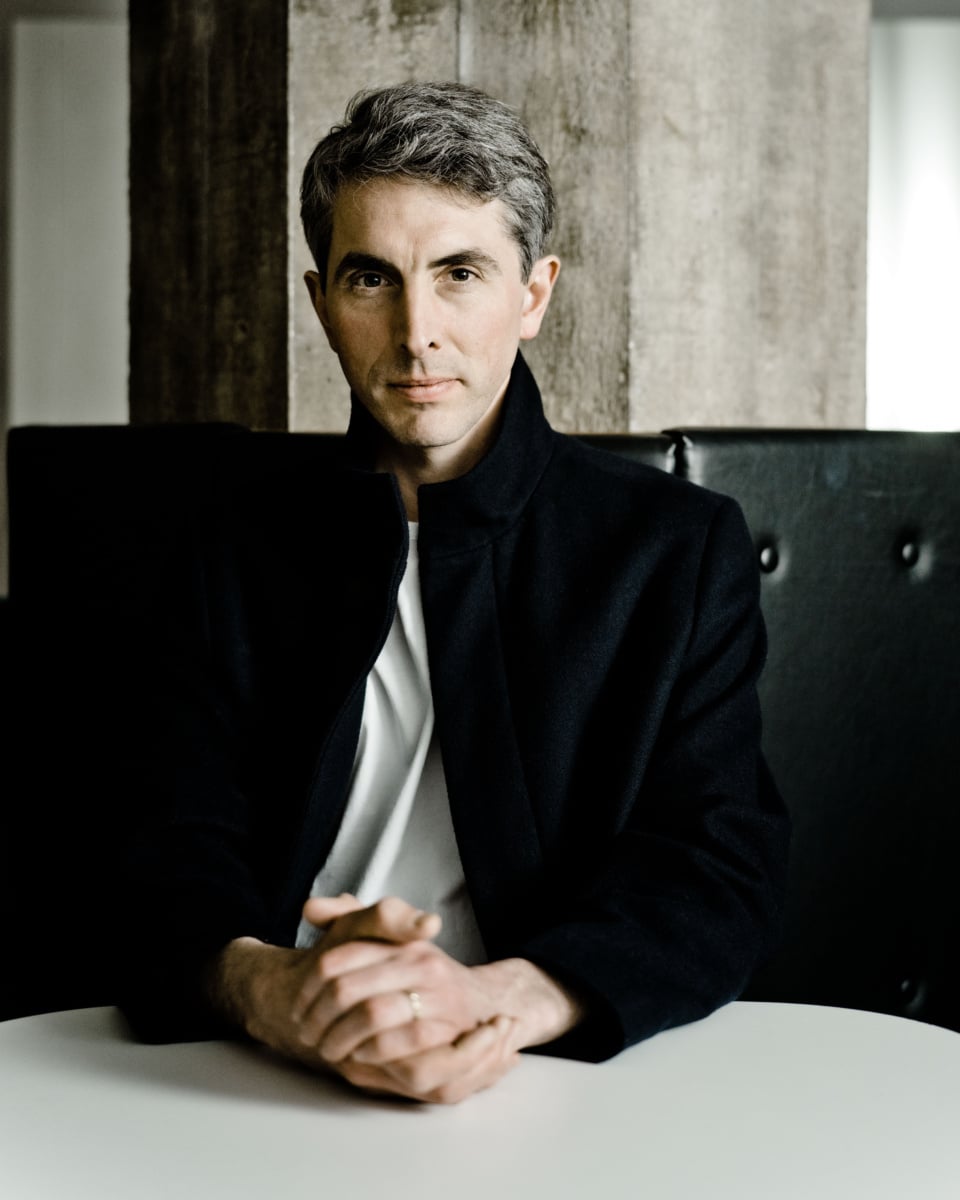Stravinsky, it seems, is fading
OrchestrasFrom my monthly essay in the new issue of The Critic:
Around the time I started writing about music, it was common — obligatory, in some quarters — to refer to Igor Stravinsky as the Great Composer of the Twentieth Century. Memories of the man were still fresh (he died in 1971) and his historic stature seemed secure.
Pierre Boulez said: “The death of Stravinsky means the final disappearance of a musical generation which gave music its basic shock at the beginning of this century.” His publisher Ernst Roth said: “After Stravinsky, it will be as it was after Michelangelo.”
These perceptions have since shrunk dramatically. Stravinsky, right now, is in freefall….
Read on here.






Art is like this. The Franck Symphony rose and then fell hard. Perhaps Stravinksy is experiencing this although to me his early ballets are unquestionably great. I just could never get into his later works. Tastes change.
The Russian ballets and e.g. the Symphony of Psalms will probably live on in the repertoire. Other neoclassical Stravinsky has still some living champions (Esa-Pekka Salonen comes to mind) and some violinists like his concerto (e.g. Leila Josefowicz makes it sound like a better work than it actually is), but it remains to be seen whether it’s going to be picked up by the next generation. Late Stravinsky doesn’t seem to interest even them, and it frankly sounds like microwaved Webern.
Try going to the ballet. They can’t live without Stravinsky
NYCB in particular. Probably half of their repertory staples are to music by Stravinsky. See: https://www.nycballet.com/search/?q=stravinsky
What ballet? Where are they?
Thanks for the essay.
Also…..Rite of Spring anniversary.
I mean…
I teach this piece every semester and think it’s “neat.” I even like it. But that like is rooted in things like: “oh, that’s what an alto flute sounds like in an orchestra.” Or, “that’s what those two chords or rhythms sound like together.”
I don’t listen to it with much more than intellectual pleasure or stimulation. It’s engaging, but it isn’t moving. It doesn’t inspire me.
And I feel like it’s more of a “crime” against my profession to say this than it is to bash Liszt or even Brahms.
Where to begin? I hope you will revisit your wholly incomplete interpretation of The Rite so your students, our future audience, will get some meaning from this masterpiece. Having grown directly out of Debussy’s Afternoon of a Faun, this is another example of classical music for adults. Tell them the story, in all of its disturbing, primal detail. The Ritual of Abduction, with its pelvic thrusts, is but one example. How about where The Chosen One (a young girl) dances to her death in front of old men. This was written 110 years ago and is still shocking. But not if you only discuss alto flutes and polyrhythms.
Larry, you need to relax. Your religion fervour is well understood but… this religion is going out of favour little by little. And that’s good.
The storyline is actually pretty corny and hardly shocking to anyone who grew up with modern movies/internet. Thankfully the music itself doesn’t need it and stands on its own.
It’s disturbing when people get desensitized to sexual abuse and violence.
The music was written for a ballet, which tells a visual story. What you hear is incomplete without that connection.
Apparently,you don´t study concert programs anymore…..His music gets widely performed around the globe…..Here is just one example,with some lesser known works..https://www.swr.de/swrclassic/symphonieorchester/veranstaltung-17-06-2023-mannheim-100.html
Prokofiev, cold as ice…
The rejection of romanticism will ultimately undermine their legacy.
Now that we’ve established that self aware abandonment of tonality that dominated much of the 20th century composition is just that, self aware art created for the only narcissistic indulgence, a whole league of composers that dominated this approach will be forgotten.
These pieces are first and foremost for enjoyment of musicians bored of tonal and rhythmic straightforwardness first, who enjoy conquering a challenge for its own sake. That’s not enough for lasting consumption by a wider audience.
I predict the next hundred years will see the revival of Taneyev and composers of similar ilk at the expense of the systematic rejectionists.
If you say Prokofiev is cold as ice, then you know nothing about his music.
Out of the three (with Shostakovich and Stravinsky), Prokofiev is the most romantic. He is a direct successor to Tchaikovsky like Stravinsky is a direct successor to Rimsky-Korsakov. His music is melody based and comes to life when played in a very expressive way.
Unfortunately, his music suffers the most from poor performers who don’t understand his style. The fiction perpetuated by people like you that his music his only mechanical and sarcastic doesn’t help. I can count on the fingers of one hand the amount of performers who play his music well. Then again I’m Russian so I empathise more deeply with his music and therefore have higher standards than most, as do French people in French music or Americans in American music.
Of course Prokofiev’s output is extremely varied, and certain periods perhaps do conform to the clichés, but all his masterpieces certainly do not. Symphonies 5 and 7, Cinderella, the two Violin Concertos, Piano Concerti 1-2-3, Piano Sonatas 2-3-5-6-7-9, the Violin Sonata, the Flute Sonata, the Cello Sonata…
And the Scythian Suite which is Prokofiev’s reaction to the Rite of Spring! Perhaps the best piece to understand the difference between the two composers, as they’re so close in inspiration. Stravinsky composed with his head, Prokofiev composed with his heart.
Prokofiev’s “Romeo and Juliet” is sublime music, representing tender emotion, hostility and aggression, youthful exuberance and, finally, tragedy. Cold? Absolutely not.
It’s true Igor was a creep, an admirer of Mussolini, among other things. But there is not a composer alive today who wouldn’t have to climb on his mother’s shoulders to kiss Stravisnky’s butt.
Now that’s an image destined to ruin my day!! I find Stravinsky ascetic and largely tuneless, but I don’t for a minute think it’s anything less than superbly artful.
A hatchet job full of subjective, and wholly, unfair assessments about his later music.
Indeed.
However, as for Roth’s comment: after Michelangelo came Gian Lorenzo Bernini. Sculpture didn’t die: it evolved and reached new — different — heights. And so it is with music; for me, Ligeti is one who took music in different, but often sublime, directions. And I could name others, too.
It’s nice to hear I’m not alone…
I was delighted to read this. Other than the formidable Sacre I have always felt entirely disinterested in S’s other works despite his glorification. Nice to know I am not alone.
Well, if you’re disinterested, I suppose we must accept that that’s an unbiased opinion.
where did he say it’s anything more then his opinion against yours? There’s no “we” who “must accept” something, mate. Grow up.
I think he may have been alluding to the use of “disinterested” as a synonym for “uininterested”. The former is much cooler, though potentially misleading. To confess you’re not interested may sound like owning up to a weakness or failing, whereas to say (meaning the same thing) that you’re disinterested gives a (possibly false) impression that you’ve made a really, really serious and well-grounded judgement.
I cannot agree that Stravinsky is fading out of sight, but that’s what makes a horserace. I think the real issue is that many other composers of his time, including those he disparaged or belittled, have come into a more complete view thanks to recordings and thanks to devoted champions, so that I.S. is not standing alone at the pinnacle, as he and Craft and Columbia Records always tried to make him do, or at least appear to do.
First however, it has always been my impression, and I think some of Stravinsky’s own writings support this, that it was as much the odd goings-on onstage at the premiere of Sacre that stimulated the riot. Modest evidence of this is that it did not take very long for performances of Sacre as an orchestral work without dance to become common, perhaps even popular, and repeatedly recorded.
Apart from the three popular ballet scores (which have the additional attraction of existing in early editions which are free of copyright fees) I see no evidence that there has been a decrease in regard for, or performances of, Symphony of Psalms, Violin Concerto, Symphony in 3 Movements, L’Histoire du soldat (in its various versions), Orpheus, wind octet, Symphonies of Wind Instruments, Apollon musagète, Duo Concertante, and the list could go on.
It is expecting too much for any of the works of his serialist phase to be truly popular — whose are? — but there is much “real” Stravinsky in Agon and the Movements for Piano and Orchestra that they deserve a life beyond the ballet repertoire.
But — and this is a bigger “but” for orchestras than many might acknowledge — ya gotta pay performance rights fees for those. And that calls for the treasurer’s department to weigh in. Their time may yet come. It should.
Completely agreed.
I would like to extend the above list with
– the Song of the Nightingale,
– the Concerto for two Pianos,
– the Septet,
– the Canticum Sacrum,
– and finally, subsumming his compositional life, the Requiem Canticles
perform anything from this list and i guarantee half of the audience will be asleep by the end. I’d be asleep performing it if I didn’t have to count my rests… and with so many time signature changes – maybe that is the secret now that I think of it.
I think Norman has irrefutably jumped the shark. To dismiss Stravinsky’s post-Sacre works as derivative and unlistenable is a perfect example of, “when somone shows you who they are, believe them.”
Call it bad timing.
If the lesser works had come before the greater one he’d be remembered better.
I suppose a re-appraisal is inevitable.
When I was in college his post-romantic ballet period was taught as worthy, but embarrassingly “accessible”. Really only for people who buy LP records and listen to them in their home.
His neo-classical work was somehow an indication of his very clever subversiveness, we were told. “Pulcinella”?… a hi-larious door-slamming on Baroque music, like “This is Spinal Tap” was for Heavy Metal.
But then his 12-tone music… ah, finally the true genius shows itself! More proof that 12-tone is where it’s at!
If it hadn’t been for the serial stuff the academics would have been saying “Igor who?” decades earlier.
“If it hadn’t been for the serial stuff the academics would have been saying “Igor who?” decades earlier.”
You are simply delusional 🙂
I adore late, serial Stravinsky. His absolute joy of creation via composition, and his deep religiosity are evident.
Stravinsky is a great example of the “wrong turn” that music took late in the 19th century.
Instead of trying to actually appeal to audiences, composers, critics, and other cognocenti took pride in obscurity and ugliness. In doing so, they lost popularity to an immense degree. Remember that Stravinsky was a student of Tschaikovsky–and the differences are striking.
I’m not much of a Stravinsky fan (though I do appreciate some of his work), but as far as I’m concerned, he’s being consigned to a much-deserved obscurity.
You may find that most artists in all fields work to express their thoughts and feelings and the goal is not to appeal to audiences, critics, and other composers. If they do appeal, that is a bonus. Art is not a factory production designed for the masses. If the masses like it, so much the better, if not, that’s the breaks. For some people, anything new or different is a threat.
In the early 1800s, people were saying the same about the works of Beethoven.
To each their own, but to stop listening to music that was written after 1900 is to miss so much. Like walking out of a Shakespeare play at mid-point.
I listen to classical music every day, and half of what I listen to was written after 1900. I hear no obscurity and ugliness, words that certainly do not apply to Stravinsky, Janacek, Britten, Shostakovich, Prokofiev, Bartok, Schoenberg, Zemlinsky, Ligeti, Kurtag, Ives, Barber (and on and on and on).
Remember that Stravinsky was a student of Tschaikovsky? His teacher was Rimsky-Korsakov, no?
“Stravinsky was a student of Tchaikovsky”. New one on me.
The violin concerto….’simplified fare’?? What exactly does that mean??? And the list of great works you fail to mention is extraordinary, Pulcinella/Suite Italienne, Renard, Les Noces, The Fairy’s Kiss (or the Divertimento for Violin and Piano), Duo Concertante, Dumbarton Oaks, Octet, Mavra L’histoire du soldat, and the Mass to mention just a few.
The essay lays bare the fact that Stravinsky was not an Original. LB in his lifetime suggested that Stravinsky stole from the best and was able to amalgamate musical ideas from other composers to create his unique sound world. Igor may have been overrated in his lifetime and lacked the originality of Bartok, but I find after having a musical diet of 19th century music, there is something cleansing and refreshing in listening to his music, especially the neoclassical period in smaller forms and ensembles. The act of presenting himself as a cosmopolite or an intellectual was always a façade. His anti-semitism is news to me. This might explain his chronic complaints of being ripped off by his publishers.
A useful counterintuitive essay. Personally I think Shotakovich more important than Prokofiev, especially on the symphonic and concerto front.
This is self evident. Shostakovich is the greatest Russian composer snd at the top of the list generally.
this is far from self-evident. how would we measure this? Prokofiev is BIG in piano concertos performances, 1st vn cto, he is massive in operas AND ballets (probably even more so than prokofiev), gosh, even just the Peter & the wolf is a massive IP.
Let’s not forget the originality and revolution that Stravinsky ushered in. He placed rhythm and color of orchestration front and center in the history of music at a time when tonality and melody were reaching a dead end. Prokofiev output is infinitely more derivative than Stravinsky’s. Perhaps there was a time when his works were overplayed but if he had not written another note after Sacre he would still be rightly considered to be up there on the Mount Olympus of composers.
@Fiddleman. Indeed, if he’d not written another note after Sacre he’d be regarded more highly!
Prokofiev more derivative? Certainly Prokofiev continued the line of Classico/Romantic, with his own dash of daring, his own spicy sauces combined in truly original harmonies, and his music is at least his own and brilliantly written in several genres. Stravinsky was unable to write a theme, let alone a tune (and unable to remember his own “music” in his own mediocre performances!), his harmonies are innately artificial as are his unnecessarily unnatural “rythms.” Everything is pinched from the Russian Collection of Folksongs and when he’d run out of that he turned to over-complicote “systems” to pull the wool over the garden path of musicians only too ready to “understand” the Master’s new noises for the prestige it generated. After the brilliant early ballets -thanx Rimsky…!), his orchestration lost all lustre, dry as dust.
Strangely, i appreciate Stravinsky best in his undoubted influence on others: Poulenc, Roussel, Honegger, Martinu…… sort of…musical stravinskys (oxymoron of the year?).
Derivative, lol. Name me a piece of music that isn’t. I’ll wait.
Haha, how incendiary!
In truth, of course, it remains that–at the very least–a dozen of Stravinsky’s works are contenders for greatest work of music of the 20th century. A towering figure of enormous influence and commanding genius. That is true and will always be true, regardless of anyone’s individual opinion or taste, and regardless of the flaws of character and personal judgment that might be pointed out in the artist, and regardless of pointing out the obvious fact that he was not, in fact, the only great composer of his era.
Masterpieces on only one hand, eh?
Petrushka
Le sacre
Les noces
L’Histoire du Soldat
Symphony of Psalms
Apollo as well as
. . . oops. I’ve already run out of fingers.
I’m trying to find an article NL wrote for one of Boulez’ birthdays (70th, 80th ?) comparing him unfavourably with Stravinsky who in old age could still create masterpieces like Agon.
All of us can change our mind of course, but there seems to have been a volte face here.
Have just read Norman’s article and the consequent comments. I felt very sorry to be picking up so many negatives. Yes, there are works which are less attractive, but this is all subjective. So much of his music – going way beyond the early ballets, and that charming early “Fireworks” – seems to me to be great. It’s well-written and good to play. I may find the serial compositions less absorbing than Schoenberg’s and Berg’s, but would be prepared to find the fault within me. His neoclassical writing is full of wit. Please don’t quell my enthusiasm. Or did it just stem from the excitement of youth?
I am so grateful someone in the West shares my feeling. Yes, Stravinsky should be fading. Music is an emotional art, Stravinsky was s**** at emotions.
Funny to bring up Boulez’s quote about Stravinsky as an arbiter, because mr. B is another one who’s inevitable gradual dissappearance is well deserved on exactly the same grounds.
(Bring it on, commenters, I’m ready for the aftermath. Who am I to… etc)
I foresee Mr Lebrecht’s next book: “Why NOT Stravinsky”
THE RAKE’S PROGRESS is regularly performed by major opera houses: At the Metropolitan in New York last year; at both the Maggio Musicale in Florence and the Teatro Colon in Buenos Aires this year.
This largest of Stravinsky’s masterpieces also has a fair number of recordings and videos.
There is simply no need to defend Stravinsky. His place in music history is assured. His music is regularly performed by world class orchestras. His influence is still felt. Igor said it best,“I had another dream the other day about music critics. They were small and rodent-like with padlocked ears, as if they had stepped out of a painting by Goya.” — Igor Stravinsky
Any “quotation” attributed to Stravinsky should be regarded with extreme caution as they would more than likely be made up by Bob Craft.
I agree with you 100% but NL is right about one thing….so much of Stravinsky’s writing were ghost written. So my guess is the above is probably a Robert Craft bon mot.
Sorry, I disagree. How is he in “free fall”? Please give specific examples. But didn’t you have a similar column, about 2 years ago, telling us Sibelius has had it? His pieces are programmed all over.
“The Firebird” seems to be a programming hit this year.
for a composer whose reputation is apparently in freefall he’s not doing too badly in terms of performances ( and this calendar won’t be comprehensive):
https://www.boosey.com/pages/cr/calendar/perf_results?composerid=2708&fbclid=IwAR0X1r5U4f2dz2jZEf1qnKYn6EWVHwkQ5K1zIbsfUW9lly0JhMJUKr3bic0
Taste changes with time, likewise reputations. Not enough Mozarts around, and many great composers are represented in the day to day catalogue by just a handful of works. So, Stravisnsky seem to have peaked early, but 3 – 6 masterpieces are not an insignificant crop. Ask Lalo…
Stravinsky has been dead for 50 years and not only is his music not in free freefall, his music seems to be being performed as much as it ever. My advice….stop hanging out with Valery Gergiev.
Thank heavens it’s becoming gradually obvious that Stravinsky has had his overblown, artificial and overlong career and will fade to a minor status, sparing us the windbag presence he’s enjoyed til now. A talented writer à la Rimsky, enjoyable Firebird, Petrushka, then “Sacre..” certainly a phenomenon, but nowhere to go afterwards. Nothing truly original, all nicked from folklore, others’ ideas and propped up by artificial time signature changes, dry as dust as time moved on. His PR assured that others’ compositions were elbowed aside and “revised versions” meant more money with extended copyright.
It’s astonishing that fine, intelligent musicians thruout the 20thCentury toed the line (Rattle, Salonen…still!), but at last the musical world wakes up. Certainly musicians liked the challenge and the prestige to master “modern, difficult….” etc, noises (and the fee….i don’t just mean the Baiser de la…!), but ordinary music-lovers were less enchanted. A mediocre composer after his early successes, he still managed to pollute the musical world and continues to do so after a couple of generations (to scan quickly the comments here!).
The comparison with Prokofiev (as mentioned here in comments), is fascinating. The mediocre, dry-as -dust self-promoter, a semi-comptetent performer, unable to remember his own compositions as pianist or conductor, as against an inventive, varied, truly original spirit, brilliant pianist and respected conductor, Prokofiev could write tunes with marvellous quirky harmonies, he danced devilishly, sang soulfully in almost any genre. And ordinary people (non-musicians!), enjoy Prokofiev.
Stravinsky fades. Thank heavens for that!
He Is not fading, Paul. Love with that.
Sad to say, so much these days is in
“free fall”!